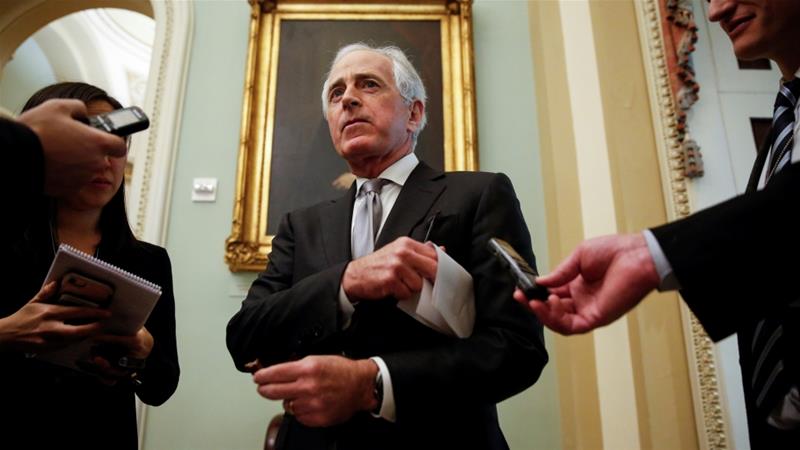Defying Trump, US Senate votes to stop US support for Yemen war
Senators also pass resolution saying that Mohammed bin Salman is responsible for the murder of Jamal Khashoggi.
US Senators have voted to recommend that the US stop supporting the Saudi-UAE-led war in Yemen, directly challenging both Saudi Arabia and President Donald Trump in the wake of columnist Jamal Khashoggi’s slaying.
Senators also approved a non-binding resolution saying that Saudi Crown Prince Mohammed bin Salman is responsible Khashoggi’s murder.
The bipartisan vote on Thursday comes two months after the Khashoggi’s killing at the Saudi consulate in Istanbul and after Trump has equivocated over who is to blame. US intelligence officials have concluded that Prince Mohammed must have at least known of the plot, but Trump has repeatedly praised the kingdom.
Khashoggi was killed on October 2 after entering the Saudi consulate in Istanbul to obtain documents needed for his planned marriage.
After offering contradictory statements for several days, Saudi Arabia admitted that Khashoggi was killed inside its consulate and his body was dismembered. The kingdom has repeatedly said Prince Mohammed had no knowledge of the killing, which Turkey said was ordered at the highest level of Saudi leadership.
‘Sends a message’
Frustration with the crown prince and the White House prompted several Republicans to support the Yemen resolution, a rebuke to the longtime ally. Others already had concerns about the brutality of the Yemen war, where a Washington-backed Saudi-UAE coalition launched an intervention in 2015 through a massive air campaign targeting Houthi rebels. Acording to rights groups and a war monitor, more than 60,000 people have died from the bombing campaign or starvation and other conditions since the war began.
The Senate vote on the Yemen resolution was 56-41. It’s unlikely the House will consider the resolution.
Al Jazeera’s Rosiland Jordan, reporting from the US Capitol in Washington, DC, said the vote is symbolic and sends a message to the Trump administration that the White House’s control of foreign policy is no longer going to go unchecked.
Sama’a al-Hamdani, a Yemen analyst from Georgetown University, added that the vote is “a message to say that the American people have reached out to their senators saying they do not want to be part of this war or responsible for human life and human suffering in Yemen”.
Source: Read Full Article



